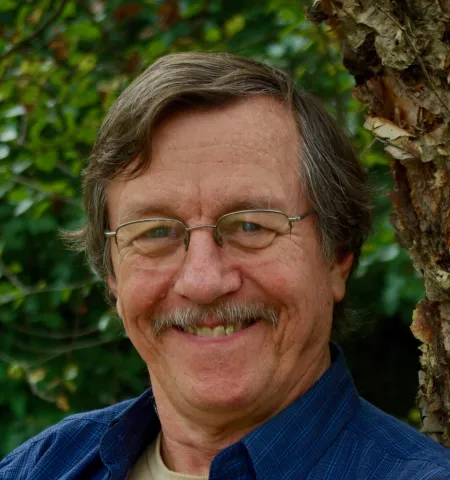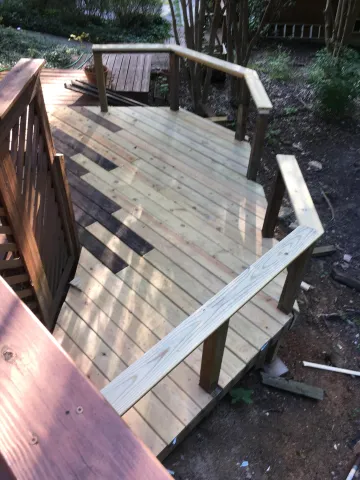One Thing Leads to Another

I was reminded again this past week about how the act of making a decision pushes the subsequent decisions in sometimes unexpected directions.
Up until recently, the backyard project I have been working on has been confined to demolition and hauling stuff to the dump. Nasty stuff. Dangerous stuff. Boards with nails and screws protruding, splintered ends, and unwieldy shapes and sizes. Finishing that (well, mostly finishing that) has meant that I could move from destruction to creation.
So I had to decide where to start. Level and fill for the patio, which would take the place of the lower deck? Relocate the pond and waterfall system? Build the access to the new space?
I chose the last option. When I finished, I stood on the platform extension I had built at the foot of the stairs leading up to the back deck and looked at the space where the lower deck (and before that the pool) had been. I had been thinking about how to do the patio and the relocation of the pond before I started on the extension and realized at once that none of it made sense any more. The patio needed to be one or two feet to the west of where I had envisioned it (and probably needed to be a different shape), which left an area that clearly needed to be the new location of the pond, and that changed the landscaping, and so on. Making a decision changes all the subsequent decisions. Maybe for the better, maybe not; I’ll never know if the original location of the patio would have been a better one than where it will certainly go now. Since the entry point to the area is now set, a whole list of things have dropped out of consideration, and things that were just another option are now on the short list of what to do next.
This has parallels in other areas: politics, business, religion, to name a few. Once an initial decision is made, what appears to be an obvious path opens up that isn’t really obvious at all, just convenient. Or, more accurately, so strongly influenced by that first decision that alternate paths, perhaps equally valid, are dismissed out of hand.
If I had chosen to set the patio location first, the entry to the area would have a completely different shape, the pond would probably be around the corner of the upper deck from the new area, and so on. Likewise, digging the pond first would have shifted everything that came later.
I know people who are paralyzed by indecision because of a reluctance to choose a starting point, a decision that guides all the other decisions. They talk around the options until they are back where they started and no closer to getting started than they were before. I do this myself and am trying to do it less often. Like the deck project, once a decision is made and I get started on whatever it is I’m working on, things begin to flow and I can shift to paying attention to process, to those times when, even though it seems clear what to do next, there may be opportunities to adjust that will result in a better outcome. I can’t outline my books before I write them, and I can’t have a schematic of the back yard in hand before I start. Generally I just try to pay attention, and most of the time it works out. It helps not to be in too much of a hurry. One of the most valuable perks of retirement is having the option to slow down, let the best next step suggest itself, and proceed from there.
Jim is the author of the Boone series and other books, both children's and adult. "Pushing Back," the first book in the series, is being podcast, one chapter a week. You can find his books and links to the podcast at housemountainviews.com. Also, if you're at the Thunder Road Author Rally next month, be sure and stop by to say hello.
- Log in to post comments
